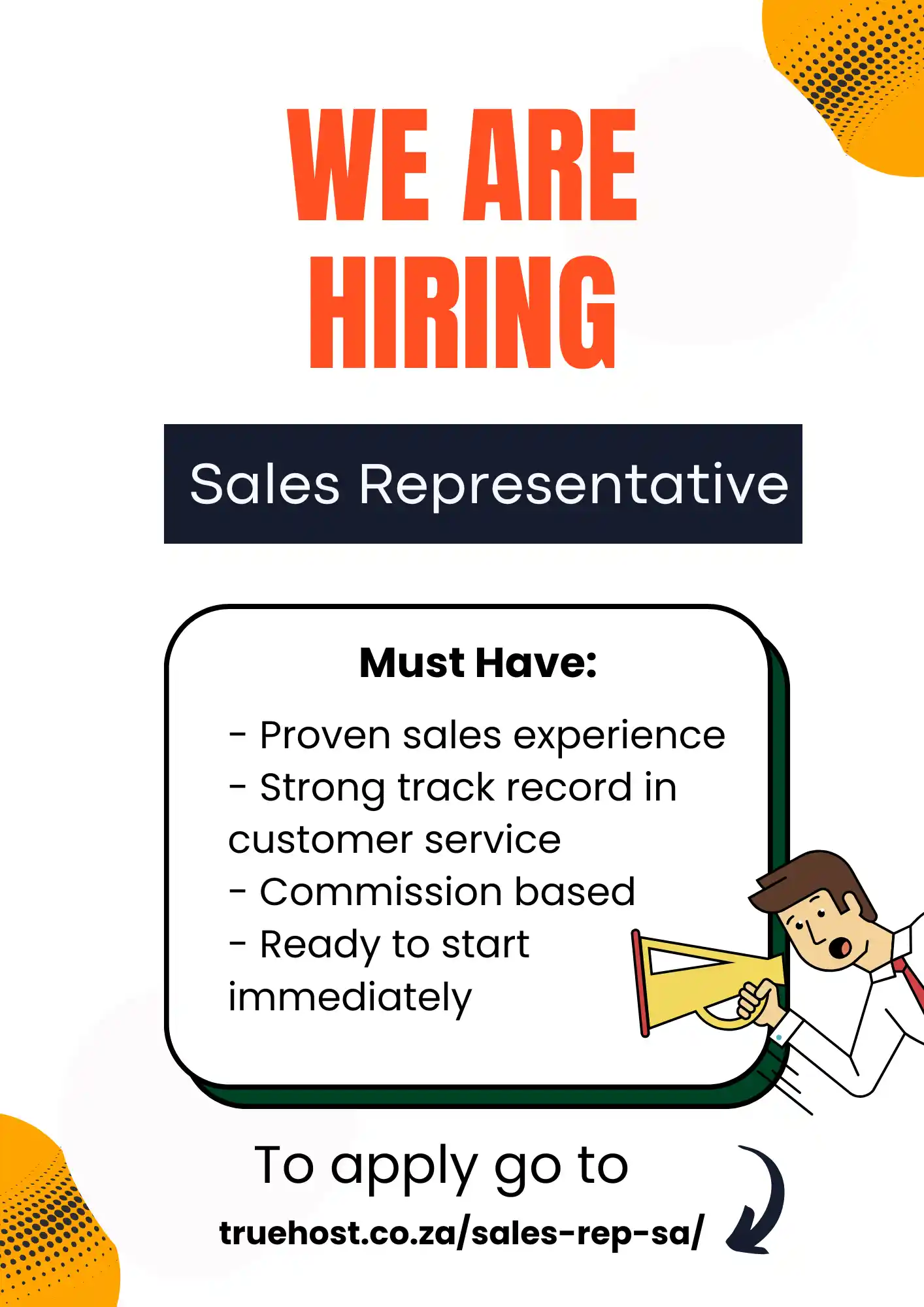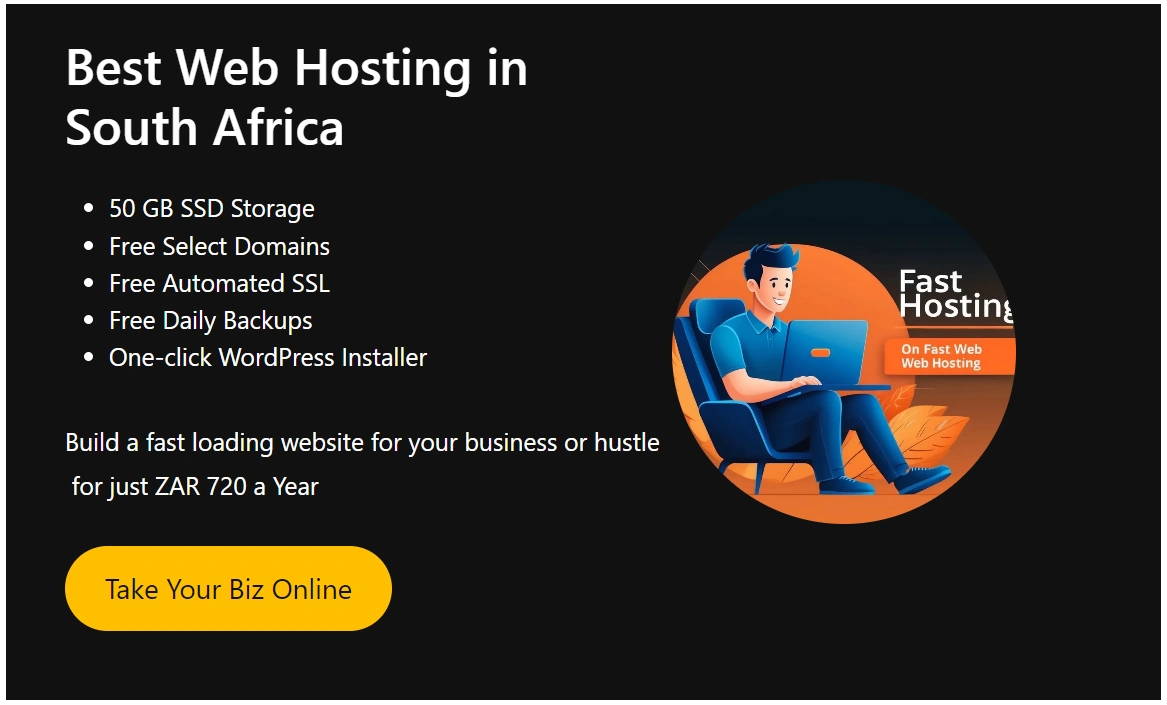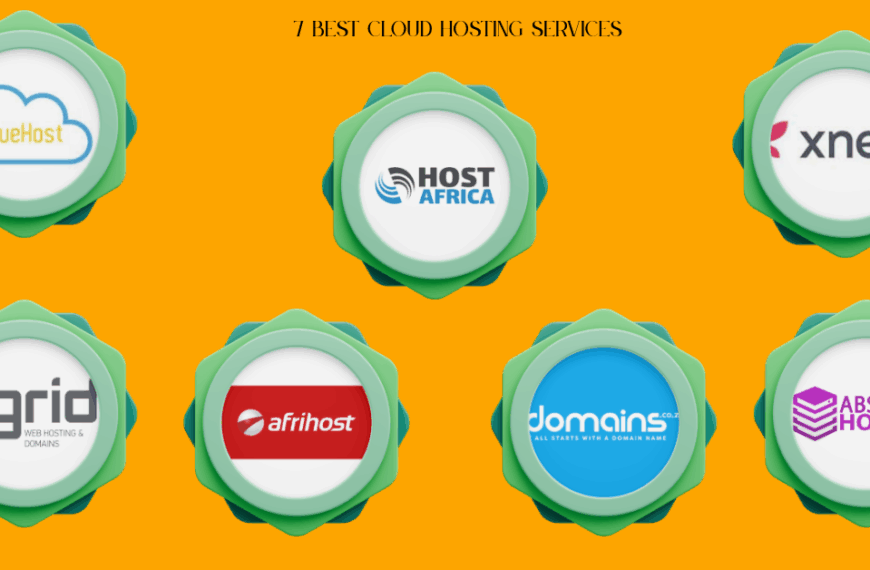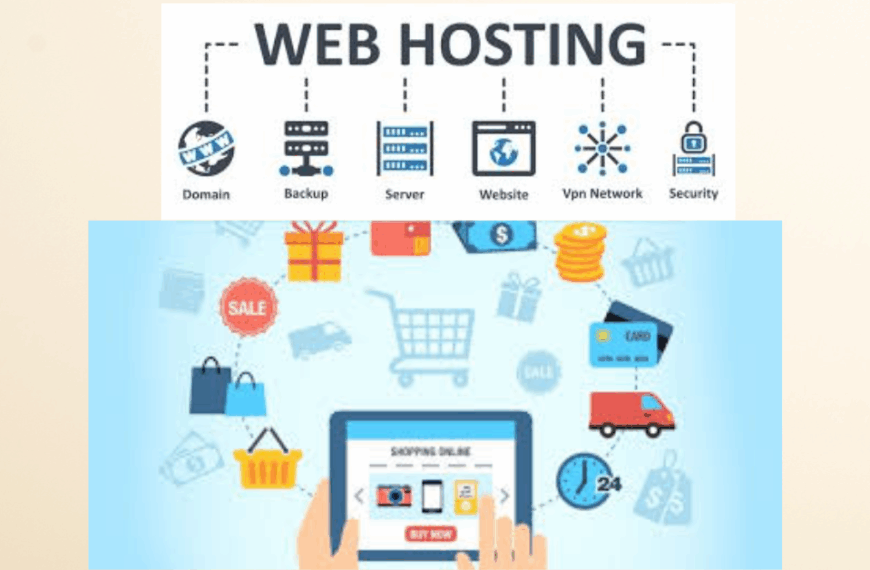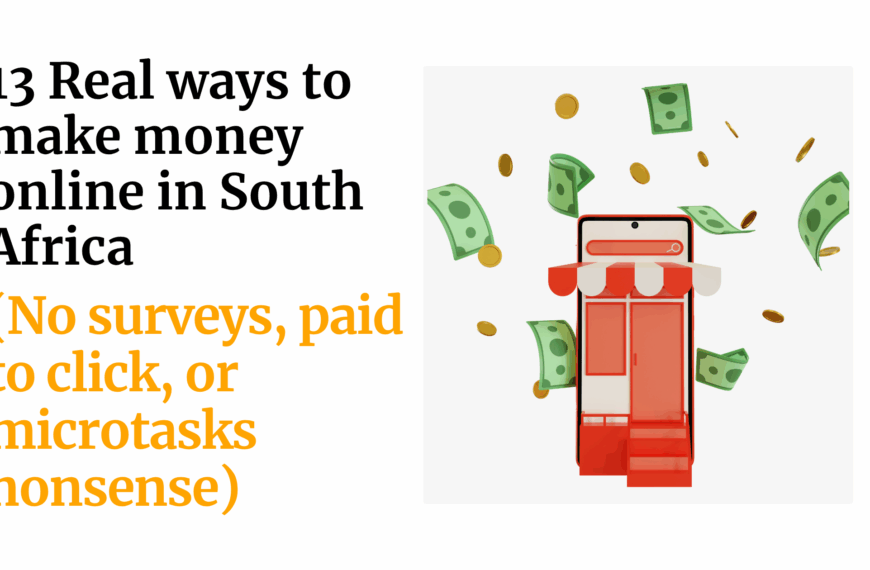Last updated on May 5th, 2025 at 05:37 pm
Are you looking for practical ways to start a business in South Africa?
Picking the right idea from the start can make all the difference in your chances of success.
Small business ideas in South Africa can help you build steady income, learn new skills, and support your community.
There are many opportunities available, no matter your experience or starting budget.
You will discover useful ideas that fit different interests and situations. South Africa’s market keeps growing, and you can find the right idea to match your goals.
Table of Contents
Top 10 Best Small Business Ideas in South Africa for 2025
1) Poultry Farming
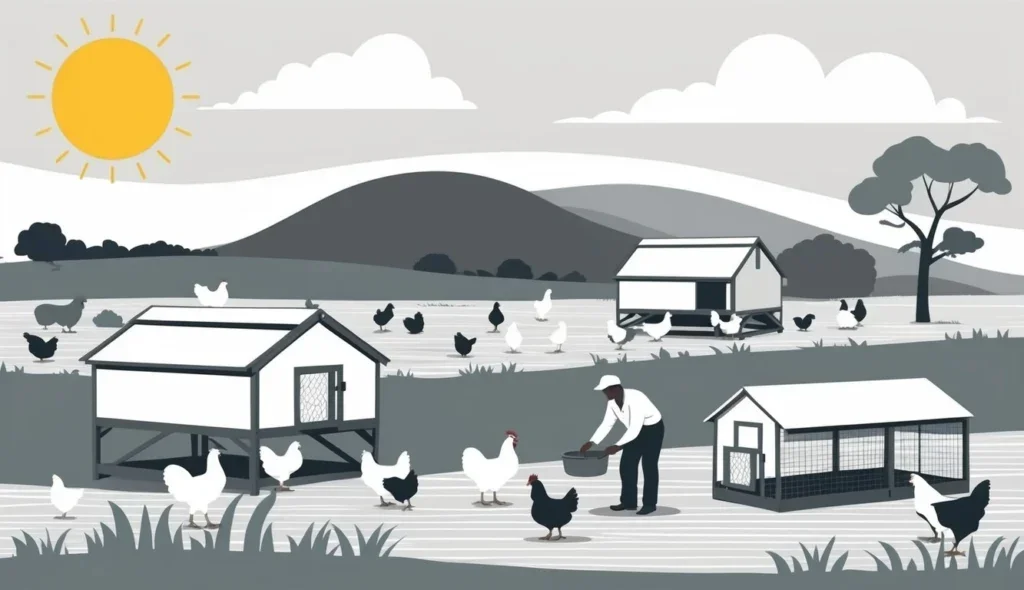
Starting a poultry farm in South Africa gives you a chance to enter a market that is always in demand. Many families and businesses buy chicken and eggs every day.
This makes it a steady option if you want a side hustle that is practical and reliable.
You do not need a lot of space to get started. With the right setup, even a small plot of land will do. You can choose layers for eggs or broilers for meat, depending on what you think will sell better in your area.
Initial startup costs can range from R20,000 to R40,000. This covers things like chicks, feed, basic housing, and equipment.
The amount you spend will depend on your farm’s size and if you start from scratch or already have some resources.
Day-to-day tasks are simple but important. You will feed your chickens, keep their space clean, and check for sickness.
Good care helps you avoid losses and build a healthy business.
Poultry farming can be started on a small budget and grown as you gain experience. Many new farmers start by serving local shops, small supermarkets, and neighbors.
If you plan well, learn the basics, and manage your costs, poultry farming offers a practical path for business success in South Africa.
2) Pig Farming
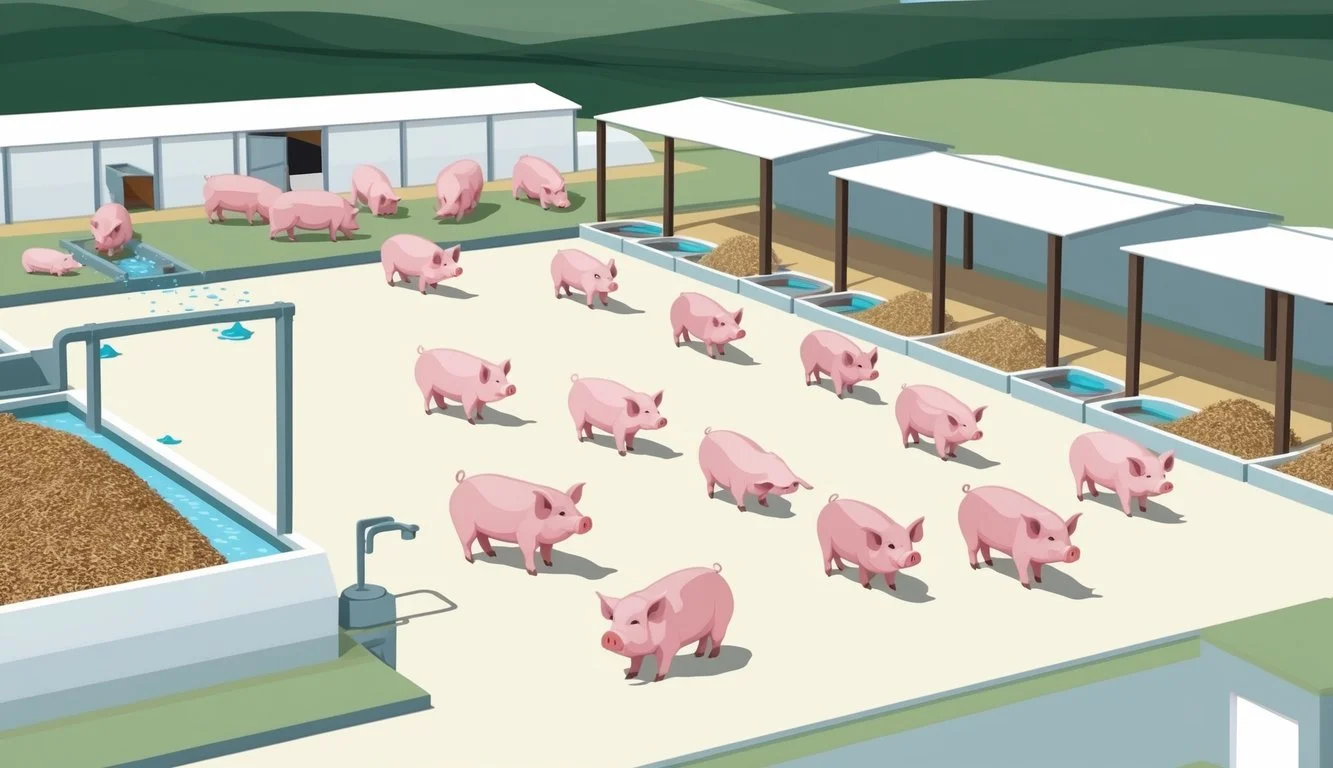
Pig farming can be a practical option for small business owners in South Africa.
You need less land than cattle farming, and pigs grow quickly, which means you can start earning sooner.
There is demand for pork across the country. Pork sells in both local markets and to larger buyers like butcheries and supermarkets.
The South African Pork Producers Organisation suggests starting with at least 250 sows to cover your costs and help your business stay profitable.
Running a pig farm requires some planning. You need proper housing, enough feed, and reliable water. Keeping your pigs healthy is important for growth and profit.
Farmer’s Weekly offers advice on basic structures and what you’ll need to get started.
Now before starting, check if you need any permits and make sure you meet animal care standards. Speaking to your local agricultural department can help you understand legal and health guidelines.
Pig farming can bring steady income if you plan properly and pay attention to animal health and business costs.
3) Dropshipping Business

Dropshipping gives you a way to start an online store without paying for stock upfront.
You sell products on your website, but the items ship directly from the supplier to your customer.
This means you do not need to rent storage or spend big money on inventory.
If you live in South Africa, you can connect with local or international suppliers. Good communication with your suppliers is key to avoid mistakes and delays.
Picking reliable partners helps keep your customers happy and your store running smoothly.
You can choose from many popular dropshipping niches in South Africa such as beauty products, home gadgets, pet supplies, and fashion.
Take time to research what people want to buy before you pick your products.
Running a dropshipping business requires a website, usually built on platforms like Shopify or WooCommerce. Payments can be set up using South African banks or payment gateways.
You manage orders and customer service while your supplier handles the shipping.
This model lets you focus more on marketing and less on packaging or delivery. With the right strategy, dropshipping is one of the easiest ways to start selling online.
4) Mobile Lunch Service
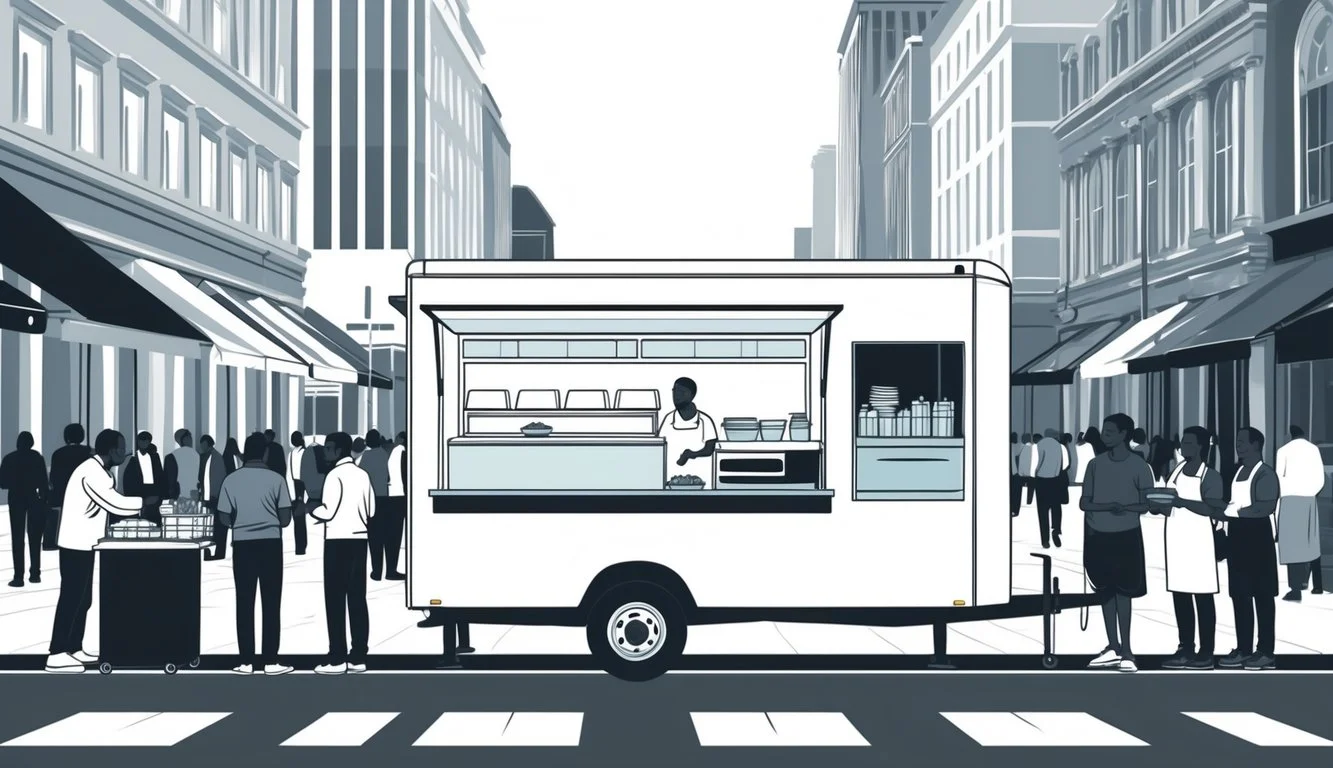
A mobile lunch service gives you the chance to deliver fresh meals to offices, schools, and busy workplaces.
People often skip lunch or pick unhealthy food because they have no time to leave their desk. You can solve this by bringing simple, healthy meals directly to them.
You do not need much money to get started, which makes it a low-risk business. A small delivery vehicle or even a bicycle works if you serve clients in your neighborhood. You can prepare food from your home kitchen if you follow local food safety rules.
Listen to your customers’ needs. Offer options such as vegetarian, vegan, or allergy-friendly meals. Daily menus can keep things interesting and draw in repeat orders.
Focus on reliability and hygiene. Use clean packaging and always deliver on time. Companies are more likely to hire you if your service helps workers stay productive without long lunch breaks.
A mobile lunch business is part of the food and beverage industry, which stays popular all year. This means you could grow your client list quickly with good service.
If you want to reach more people, use social media to post your daily menu and let customers pre-order. This will help you manage costs and avoid food waste.
5) Freelance Writing and Editing
Freelance writing and editing let you earn from your language and communication skills.
You can write blog posts, online articles, resumes, or edit existing content for grammar and style.
This is a flexible business idea. You can work from home or any location with internet. Many new businesses need digital content, so skilled writers and editors stay in demand.
With low overhead, this option suits people looking for a low-investment business in South Africa.
Freelance websites such as Upwork and Fiverr, and online job boards (Flexjobs, Problogger, AIJobs.pro) help you find clients. You can also join online groups or offer your services on freelance platforms.
Having a portfolio or a few writing samples boosts your chances of getting clients. For such, consider building a simple website or sharing your work through social media.
Truehost is a great option for hosting your online business for less.
Tasks in this area can include
- Content creation for blogs and websites
- Editing business documents, or
- Résumé writing.
You decide which services fit your skills best.
Starting as a freelance writer or editor gives you control over your workload and clients.
As you gain experience, you can raise your rates and work with bigger companies or long-term clients.
6) Tutoring Services
Tutoring is one of the most practical small business ideas in South Africa.
Many students and parents look for extra lessons to help with school subjects, exams, or language skills.
You can start tutoring from home or online. Both options keep startup costs low and make it easy to reach more students.
The South African market for tutoring still has room for new businesses, even with big names already around.
As mentioned by BizBolts, there are plenty of learners needing support, from school children to university students.
Tutoring also fits perfectly for college and university students who want to earn extra money. If you excel in a subject, you can offer tutoring services to peers or younger students.
To get started, you need basic teaching materials, a quiet space, and simple tools like a notebook or laptop. advertising your services on social media, school boards, or local forums can help you find your first clients.
7) eLearning Platform
eLearning is a growing field for small business ideas in South Africa.
Your e-learning platform can help people gain skills from home or work. Because the internet is widely used, many want to learn online rather than in person.
You can offer short courses in business, coding, health, or language.
For example, GetSmarter is based in Cape Town and delivers short courses that are easy to access. These courses can attract students, professionals, and small business owners.
If you want to support new or growing businesses, you can focus on business training. The LEARN-i-BIZ platform targets small business managers and entrepreneurs in South Africa. It helps leaders run their companies better with practical lessons.
Setting up an online learning website is easier now, thanks to digital tools. You can use video lessons, downloadable worksheets, live webinars, and quizzes to help users learn at their own pace. The cost to start can be lower than traditional schools, making it a practical choice for new business owners.
Offering affordable prices and useful content can set your e-learning platform apart. To reach more people, consider partnering with local organizations or businesses.
8) Car Wash Service
Starting a car wash service in South Africa gives you a way to meet a daily need. Busy lives and growing cities mean many people want quick, reliable car cleaning.
Basic equipment for a car wash includes pressure washers, cleaning products, buckets, and cloths. You need a steady water supply and access to electricity. Some businesses are adding eco-friendly cleaning solutions or water-saving technology to attract more customers.
A good location is important for steady business. Pick places near shopping centers, busy roads, or office parks where people pass by often. It also helps to offer easy drive-in access.
You can offer several services, such as basic washing, waxing, vacuuming, or interior detailing. Some car washes wash only the outside, while others offer a full clean inside and out.
Mobile car wash services are also growing. With a mobile setup, you travel to customers’ homes or workplaces and clean their cars on-site.
This business model often needs less rent and equipment to get started.
Marketing your car wash can be as simple as clear signs, flyers, or local ads. Many customers find businesses on social media too. Good service can lead to word-of-mouth marketing and loyal repeat clients.
9) Airbnb Hosting
You can earn money by renting out a spare room or your entire home to travelers. This works well in cities and tourist areas.
Setting up an Airbnb listing involves taking good photos, setting clear house rules, and writing honest descriptions. Clean and comfortable spaces attract better reviews.
Many hosts in South Africa average about R9,000 per month by renting their property on Airbnb. This number may vary by location, size of the property, and the time of year.
Guest communication is important. Respond quickly to questions and make check-in easy. Good service encourages five-star reviews.
You should follow all hosting rules and local laws. Airbnb offers resources to help you understand your responsibilities, which you can read about in their responsible hosting overview.
Extra touches can make guests feel welcome. Provide clean towels, local guides, and basic kitchen supplies. Small details often make a big difference in guest satisfaction.
10) Tailoring and Alterations
If you have sewing skills, starting a tailoring and alterations business in South Africa can be a smart move.
People often need adjustments to their clothes for better fit or style, making this service always in demand.
Whether it’s fixing hems, resizing pants, or mending zippers, you can handle many types of clothing repairs.
You don’t need a large space to begin. Many successful tailors and alteration specialists work right from home, helping cut down on costs. With just a sewing machine, basic tools, and some fabric, you can offer reliable and fast service in your local area.
Offering tailoring and alteration services means you get to work closely with customers. This lets you build trust and a steady client base over time.
You can also expand your services to custom dresses, uniforms, or even home decor adjustments, such as curtains and pillowcases.
If you want to reach more people, consider using social media to show before-and-after pictures of your work. There’s also the option to teach simple sewing skills to others, adding another income stream.
Key Considerations for Small Business Success
Planning a small business in South Africa is not just about having a great idea.
You also need to think about the people you want to reach, the laws you must follow, and how you will get the money to run your company.
Learning about the market, understanding the main rules, and making sure you have access to finance are all vital steps. Taking the time to get these right can help you avoid risks and run your business more smoothly.
Market Research and Target Audience
Researching your market helps you know if people want your product or service. Start by looking at what similar businesses offer in your area.
Use surveys or talk to potential customers to find out their needs and problems.
Find out who your target audience is by looking at age, income, and location. Make a list of what these customers like or dislike.
This information guides how you price, advertise, and sell your products.
Check the size and growth of your market. Analyze if there are gaps in what is being offered. Look for ways you can offer something new or better than competitors.
The more you understand your audience, the easier it is to solve their problems and encourage them to choose your business.
Local Regulations and Compliance
South Africa has specific rules for starting and running a business.
You must register your business with CIPC (Companies and Intellectual Property Commission). Also, get a tax number from SARS (South African Revenue Service).
Check if you need special licenses. Some businesses need health, safety, or zoning permits. For example, selling food or operating in certain areas requires extra steps.
Make sure you follow the correct employment laws if you plan to hire staff. Keep proper records for taxes and compliance checks. There can be fines and even forced closures for not following the law.
Your location and industry can affect the rules you face. Visit government websites or use local business guides to learn what you need for your specific business.
Keeping up with regulations saves time and prevents legal trouble.
Access to Funding and Resources
Many small businesses struggle to find enough money to launch or grow.
You can use your own savings or ask friends and family for help. If you need more, look at bank loans, government grants, or small business funding programs.
Getting investors or business partners is another option. Some banks in South Africa offer loans specially designed for small businesses. Prepare a clear business plan and budget to increase your chances of getting funding.
Non-financial resources are just as important. Look for business support services, training programs, or online tools to improve your skills.
Networking with other business owners can lead to useful contacts and advice.
Access to funding is often a key factor for small business success in the country. Make sure you know what options are available and how to apply for them.
Being prepared helps you stay on track and handle unexpected costs.
Adapting to the South African Market
Building a small business in South Africa means you must pay attention to what people want and how you can serve them better than others.
Using the right technology and digital tools can also help you reach more customers and run your business more smoothly.
Local culture, income levels, access to technology, and customer habits all matter.
Understanding Consumer Needs
You need to know what people in your community truly want.
Most are looking for value, reliability, and friendly service. If you solve a real problem or make life easier, your business stands out.
Many customers compare prices and check reviews before buying anything. Good businesses are easy to trust and ready to listen to feedback.
Try simple ways to learn from your customers:
- Ask them what they want face-to-face or through online surveys
- Watch what gets talked about most on social media
- Track which products or services sell best each month
Differences between rural and city areas matter, too. For example, urban consumers may want fast delivery and digital payment options. Rural customers may need flexible payment plans or cash on delivery.
Customer needs shift over time. To keep up, you must stay informed about local trends and pay close attention to competitor businesses.
Market research and regular feedback will help you spot changes early and adapt your business quickly.
Leveraging Technology for Growth
Technology plays a big role in small business growth.
Even on a tight budget, you can use it to improve how you connect with customers and sell your products.
Start with a social media page. Sites like Facebook, Instagram, and WhatsApp are great places to start.
You can share deals, answer questions, and get quick feedback for little or no cost.
Online payments make it easier for people to do business with you. Mobile payment apps and online banking are common in cities. If you sell products, an online store lets you reach more buyers across the country.
Here are some easy ways to use technology:
| Tool | Main Benefit |
| Talk to clients, handle sales, and support | |
| Facebook/Instagram | Share news, and promote products |
| Mobile apps | Make it easy to order and pay |
| Website | Sell online, and give key info |
You don’t need to spend a lot at first.
Focus on tools that fit what your customers use most.
Choose the best digital tools for your business type and update them often. This approach helps you stay ahead, reach more people, and boost customer satisfaction.
Small Business Ideas SA FAQs
Which small business is most profitable in South Africa?
South Africa has several profitable small business opportunities, especially if you focus on essential services or tap into growing industries.
| Business Type | Why it’s profitable | Startup Cost | Skills Needed |
| Fast food outlets | High demand, especially in urban areas | Medium | Cooking, operations |
| Spaza shops / Tuckshops | Serve daily needs in townships and rural areas | Low | Retail basics |
| Cleaning services | Low overhead, steady clients (homes & offices) | Low | Attention to detail |
| Hair salons & barbers | Always in demand, repeat customers | Low | Grooming skills |
| Bakery business | Great for local supply & event catering | Medium | Baking, marketing |
| Poultry farming | Eggs & broilers sell fast in most areas | Medium | Basic farming |
| Delivery services | Growing with online shopping | Medium | Logistics skills |
| Digital marketing agency | Helps businesses grow online | Low | SEO, social media |
| Mobile car wash | Flexible and scalable | Low | Car care |
| Online tutoring | Especially profitable in subjects like maths | Very Low | Subject expertise |
🔥 What makes a business profitable?
- High demand: Solve real problems or meet everyday needs
- Low running costs: Keeps your profits higher
- Repeat customers: More stable and scalable
- Location-friendly: Businesses that suit township, suburban or urban areas
What is the most wanted business in South Africa?
Some of the businesses that people are actively searching for online in the country include:
- Dropshipping and online stores
- Solar panel installation
Mobile car wash - Food delivery apps or dark kitchens
- Hair salons and barbers
- Small-scale farming (eggs, pigs, herbs)
- Cleaning services (especially eco-friendly)
- E-hailing cars or ride-hailing platforms
- Forex and crypto trading education
- Freelance services (graphic design, content, translation)
How can one start a home-based business in South Africa?
You can run a business from your own home with just a computer or smartphone.
Services like freelance writing, editing, web design, and online tutoring suit a home setup.
To begin, register your company, set up a business bank account, and get the right tools.
What are the best sectors for starting a small business in South Africa?
Agri-businesses like poultry or pig farming have steady demand. The food sector, especially meal services and fast food, is also strong.
Other promising sectors are online retail, tech services, and last-mile delivery. These markets keep growing even in tough times.
What profitable small business can I start with a minimal investment in South Africa?
A mobile lunch service or dropshipping shop needs little money to start.
Freelance services like writing, graphics, or social media management also require only internet access and basic equipment.
Running these businesses means you avoid the high costs of renting space or holding stock.
What unique small business concepts have proven successful in South Africa?
Mobile lunch services that deliver prepared meals to offices are growing fast. Farm-to-table businesses selling fresh produce are popular in many towns.
Dropshipping stores that target niche products have found steady customers.
Which small businesses have the highest growth potential in South Africa?
Poultry and pig farming continue to show strong returns due to high meat demand.
Digital service businesses, like web design or app development, are expanding as more people move online.
Online retail, especially dropshipping, is attracting new growth. Mobile services that bring food or products directly to customers are also booming.
 Web Hosting
Web Hosting Windows HostingBuilt for Windows apps and websites – stability, speed and flexibility
Windows HostingBuilt for Windows apps and websites – stability, speed and flexibility Reseller HostingLaunch a hosting business without technical skills or expensive infrastructure
Reseller HostingLaunch a hosting business without technical skills or expensive infrastructure Affiliate ProgramRefer customers and earn commissions from sales across our platform
Affiliate ProgramRefer customers and earn commissions from sales across our platform Domain SearchFind and secure a domain name in seconds with our quick lookup tool
Domain SearchFind and secure a domain name in seconds with our quick lookup tool CO ZA Domains
CO ZA Domains All DomainsExplore domain names from over 324 TLDs globally – all in one place
All DomainsExplore domain names from over 324 TLDs globally – all in one place Free Whois Lookup Tool South Africa
Free Whois Lookup Tool South Africa VPS
VPS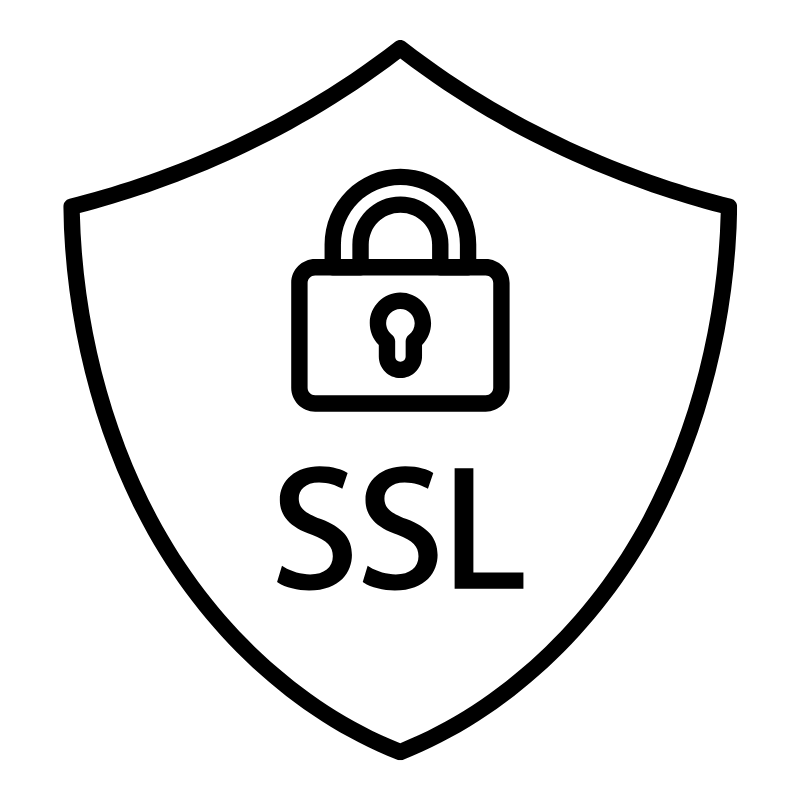 SSLs
SSLs